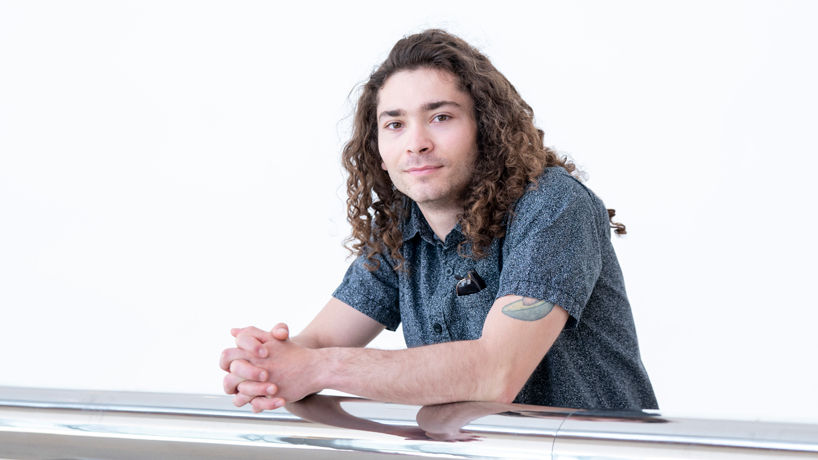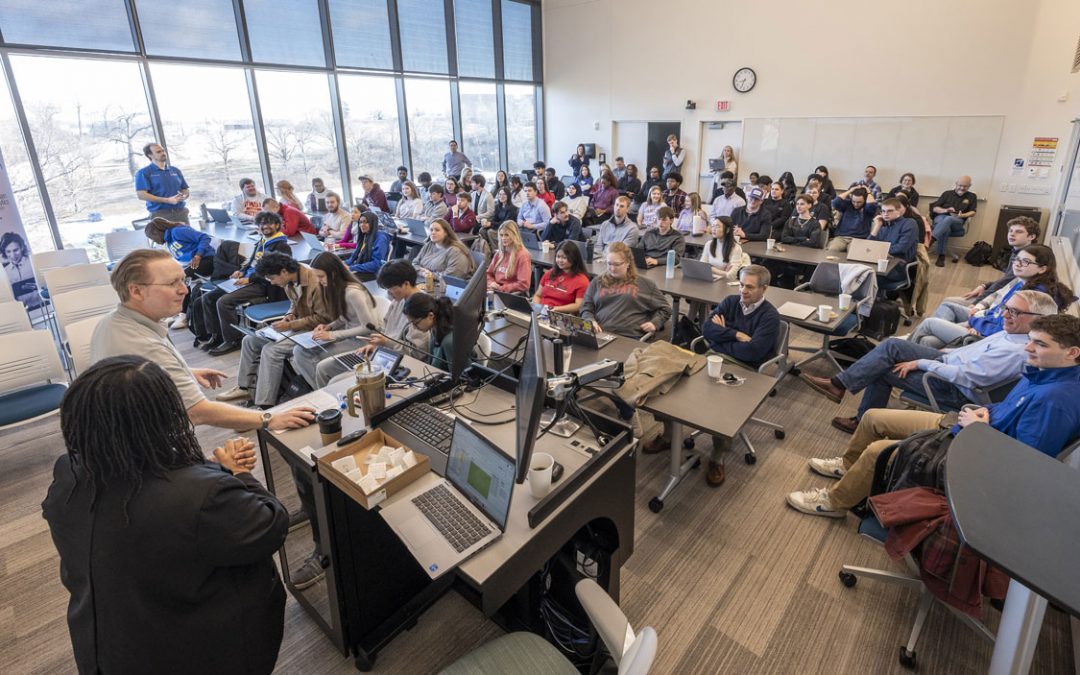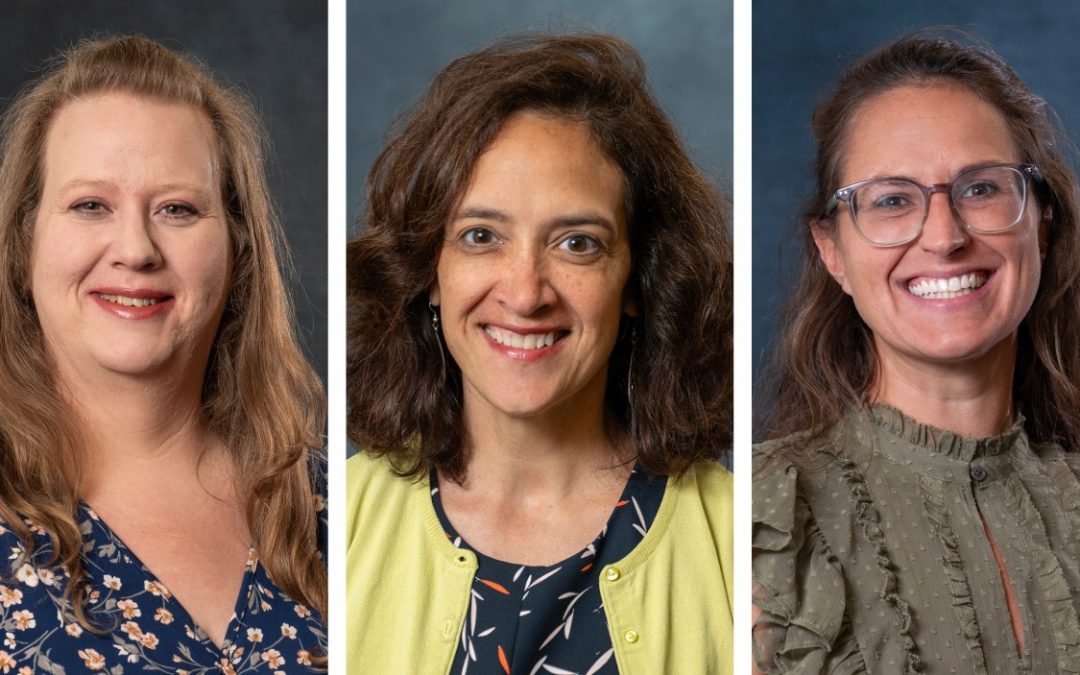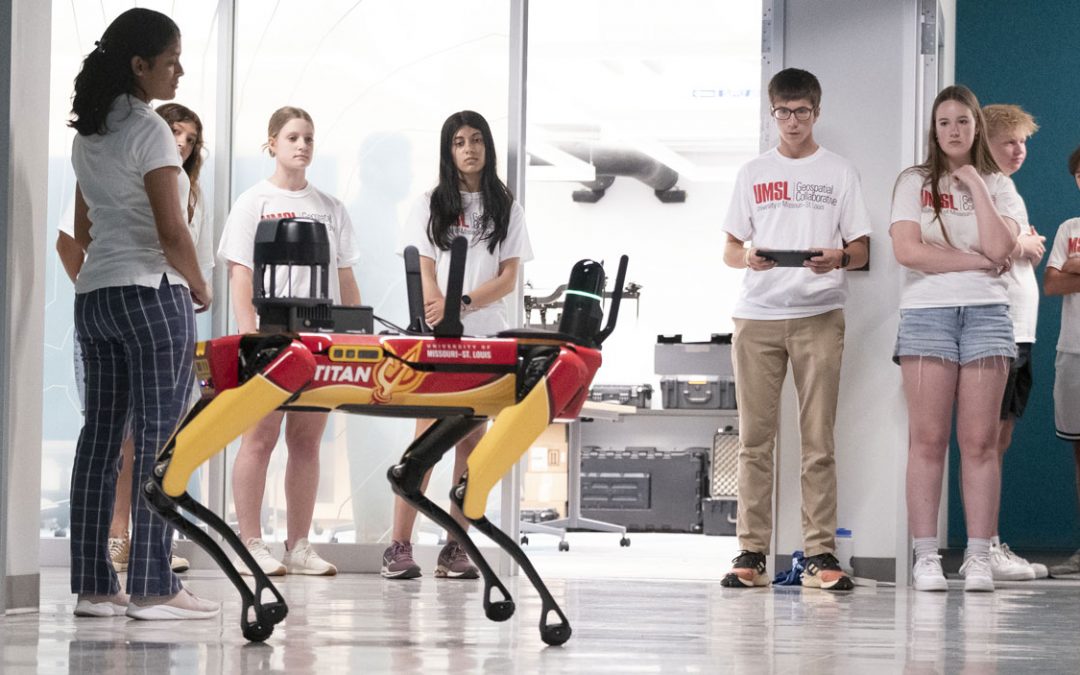
UMSL alumnus Kam Moss graduated with a bachelor’s degree in psychology, and he also was selected to participate in the selective Japan Exchange and Teaching Program. During his yearlong assignment, which can be extended further, Moss will assist a Japanese teacher in foreign-language classes and serve as a cultural ambassador. (Photo by August Jennewein)
While studying at Lewis and Clark Community College, Kam Moss assumed he would transfer to a four-year university to pursue a degree in computer science or cybersecurity.
However, after enrolling at the University of Missouri–St. Louis, Moss found that computer science failed to hold his interest. His “General Psychology” course did, though. He was also pleased to learn that UMSL is home to the premiere Japanese language program in the region – a language he began to teach himself a year prior to enrolling.
In May, Moss graduated from UMSL with a bachelor’s degree in psychology, and in July, he will travel overseas to participate in the prestigious Japan Exchange and Teaching Program.
The program accepts between 2,000 and 3,000 Americans annually. During his yearlong assignment, which can be extended further, Moss will assist a Japanese teacher in foreign-language classes and serve as a cultural ambassador to promote the JET Program’s goal of international cooperation and exchange.
Proficiency in Japanese is not a requirement for the program, but UMSL’s Japanese program has an excellent track record of preparing students for the endeavor. Participants work in both private and public schools throughout Japan, but Moss is still waiting for his assignment.
“It still doesn’t feel real,” he said. “It won’t feel real until I’m there probably.”
Moss’ journey to Japan started on the Illinois side of the St. Louis metropolitan area. After completing two years at Lewis and Clark, he considered a few universities in southern Illinois, but his friends’ experiences led him to broaden his search.
He thought UMSL seemed more interesting and provided an opportunity to see another part of the region. The university’s affordability was also attractive.
“You can actually afford to go to school here even if you don’t have scholarships,” he said.
The concrete nature of mathematics and science had always appealed to Moss, and he thinks of himself as scientifically minded. Yet something was missing from computer science. On the other hand, psychology proved to be engaging, while also fulfilling his interest in science.
“I do really like that you’re trying to apply the scientific method, the same one that you use for all other disciplines, to people, which seems really important,” Moss said. “It seems really important to understand how people work and how to predict behavior.”
The College of Arts and Sciences‘ foreign language requirement led Moss to the Japanese program. Like many others interested in the language, Moss had been learning it on his own for about a year before coming to UMSL.
A non-Western art class at Lewis and Clark piqued his interest in Japanese culture, particularly the country’s history and the weight given to artisan mastery. But it was a YouTube video – a man-on-the-street interview – that inspired him to start learning Japanese. It was unlike any language to which he had previously been exposed.
It was a puzzle Moss wanted to solve.
“I started looking into it,” he said. “I started looking into how difficult it would be to learn Japanese – pretty difficult – and I was like, ‘All right, I’m going to do it then.’ That was it. Then I just kept doing it every day.”
Moss said speaking with his fellow classmates helped him become more articulate, and the program provided guidance in the intricacies of the language that would have been difficult to grasp on his own.
“The UMSL program has been very good,” he said. “I’ve learned so many things that I never would have thought to teach myself, things I probably would have never discovered. Japanese is specifically complicated with the levels of formality. That probably would have always been a mystery if I had never taken a class and actually studied that.”
He’s proud of the progress he’s made, noting he can now watch a Japanese news report or show on Netflix and understand most of it. But there were points along the way when he doubted himself and whether he was making any progress.
“At every point, you’re taking another step toward it,” Moss said. “It just doesn’t feel like it. It just takes forever, and it’s a grind. So, when you actually step back, and look at it, you’re like, ‘Whoa, I actually did get somewhere.’ It is pretty cool. It feels very good, feels very rewarding.”
The JET program also served as a goal to strive toward. Moss learned about it as he started learning the language and has looked forward to joining it for about three years. He departs for Japan on July 23 and should learn his assignment soon.
Moss hopes that he’ll be able to serve a more rural area. The hustle and bustle of a city can be exciting, but he feels that it can also be a bit impersonal. The pace of life and busy schedules can leave little time to connect with neighbors and strangers, which is why he would prefer to be assigned somewhere removed from Japan’s famous metropolises.
“I’d rather be somewhere where I’m seeing the same people every day and building a community around me – that sort of thing,” he said.
JET participants can extend their assignment up to five years, but Moss expects to stay for three. It will give him enough time to improve his fluency and to plan his next steps when he returns – possibly pursuing a graduate degree in psychology.
“My hope is that when I get back my Japanese will be at the same level as my English,” he said, joking that returning to the U.S. will be an adjustment. “That could also mean that my English gets worse.”














